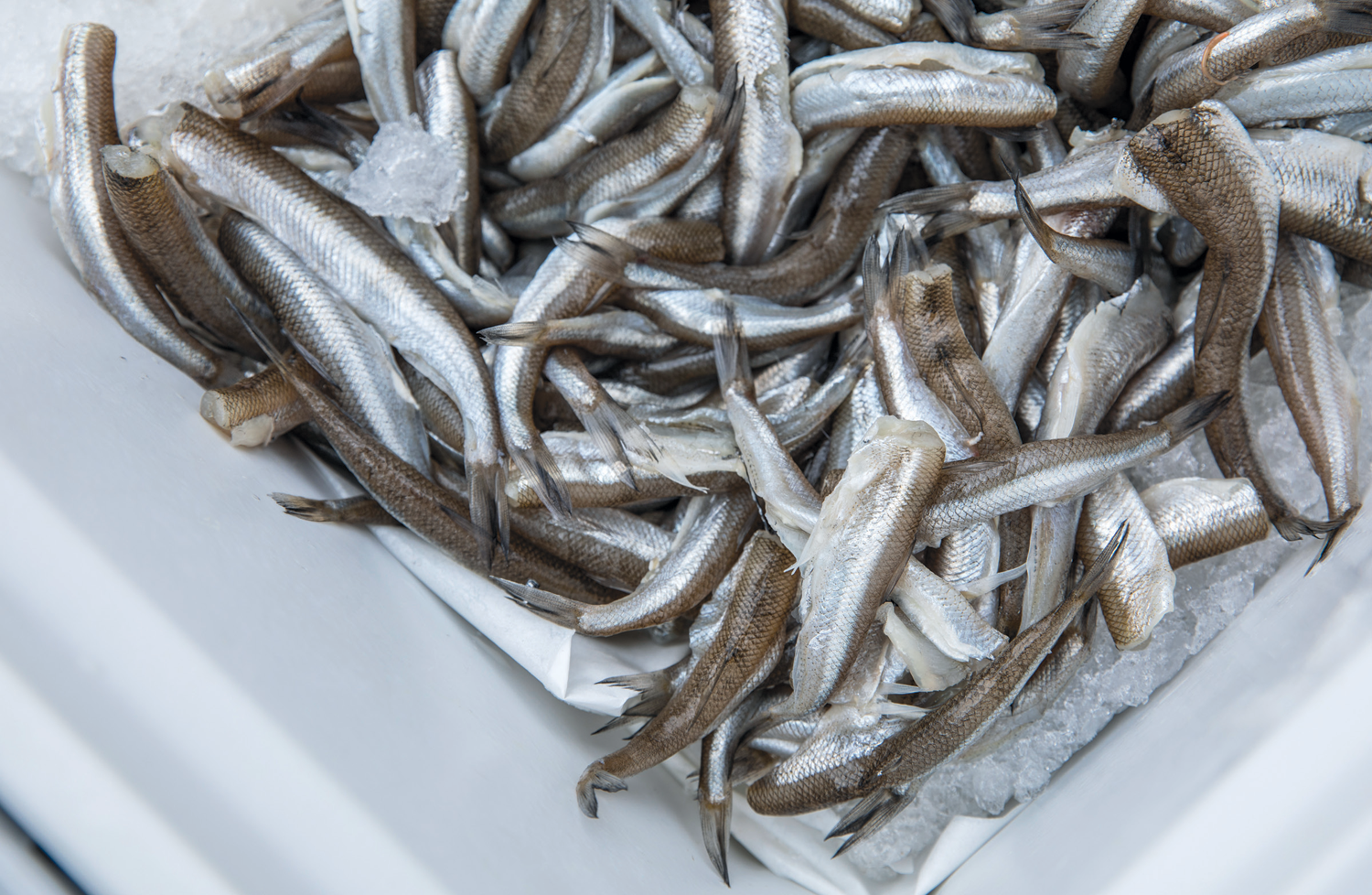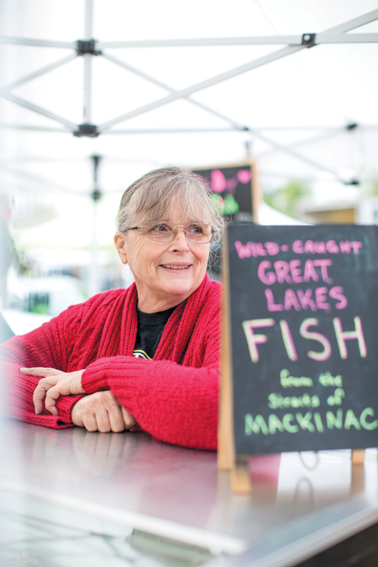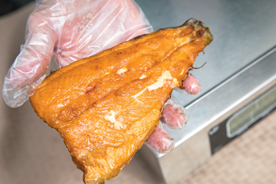Special Delivery: Mackinac Fishmongers
One of the highlights of a visit to northern Michigan is the opportunity to enjoy fresh whitefish, so fresh it still tastes of the lake. That’s pretty hard to come by in southeast Michigan. But it has become possible, if you know where to find it.
Greg Wright, proprietor of Mackinac Fishmongers, spends his weekends traveling to farmers’ markets in southern Michigan, delivering fresh, frozen and smoked fish from northern Michigan waters. He collects the fish from a processor in St. Ignace on Friday and sets up on weekends in farmers’ markets in Birmingham, Rochester, Farmington, Grosse Pointe Park and at the Oakland County Farmers Market in Waterford.
Wright lives above the bridge in Mackinac County, halfway between St. Ignace and the unincorporated town of Hessel (population 2,000). “We live right in the middle of nowhere,” he says. “Mackinac County does not have one single traffic light. It’s as rural as you can get.”
For a guy who grew up in Royal Oak, that might seem like quite a change, but it’s clear he is happy there. Wright started fishing as a youngster when his parents purchased land on a lake in Wolverine. “I loved it and pretty much wanted to learn everything I could about biology,” he says. He went on to Michigan State University and a career as a fisheries biologist, eventually settling in the UP.
“I’ve been around the fisheries all my life. I know the fishery and the fishermen,” he says. He started Mackinac Fishmongers in 2014. “I try to deal with mainly trap-net fish. They’re caught live. We buy almost exclusively from tribal commercial fishermen.”
The idea of starting a business bringing wild fish caught in the Straits of Mackinac to southern Michigan started as a way for Wright to spend more time in Pontiac with his aging parents. The plan was to visit more regularly, raise some money and, at the same time, expand the market for whitefish to help native fishermen. “Like everything, we started small,” he says.
Massey Fish Company in St. Ignace is just 15 minutes from his home. “The vast majority of our product comes from there,” he says. “We can guarantee freshness. We can’t always guarantee varieties because we’re literally bringing what they sell.”
Whitefish is the “bread and butter” of the business. Other offerings, based on availability, might include yellow perch, lake trout, walleye, smelt, lake herring and Chinook salmon. “What limits me is product availability and just logistics,” he says.
On Friday nights, with 40 to 50 coolers, he and his wife, Karen, fill a van and trailer with fish and make the trip downstate. They meet their daughter Caitlyn along the way, transferring to her the catch for the west side of the state, farmers’ markets in Hudsonville, Rockford, Portage and Fulton Street (Grand Rapids). “The actual selling the fish at farmers’ markets is the fun and easy part,” he says.
Fish from the Great Lakes has typically been processed out-ofstate and shipped back to stores and restaurants—still good, but six days old, Wright says. “Once you realize what a real fresh whitefish tastes like, you can taste the difference, and you don’t want to go back.” At market, he aims for grocery-store prices of fish that were caught yesterday.
Among his enthusiastic customers is Andiamo West Bloomfield Executive Chef Bill Hall. “Best whitefish in town,” Hall says. “The quality difference is huge.” Diners “come in here in droves” for the whitefish. Hall also buys smoked fish products and, when available, perch and trout. The offerings are limited, by necessity, to just one restaurant; to supply the entire chain would take 1,000 pounds a week. “All the restaurants want it,” Hall says.
Ellen Yerks, market manager of the Birmingham Farmers Market, says even kids like it. “We used their fresh fish to sample [for] kids once at the farmers’ market, because kids don’t necessarily eat fish,” she say. “It definitely changed some kids’ perspective.”
Commercial fishing on the Great Lakes is regulated in Michigan. According to the Michigan Department of Natural Resources, tribal fishermen operate under treaties; a limited number of nontribal fishermen are licensed by the DNR. Whitefish makes up the vast majority of the commercial catch. An annual quota is set for the amount of whitefish that can be harvested so the stock doesn’t become depleted.
“Whitefish quotas have been decreasing because of invasive species,” Wright says. “If there were places to get other fish, I would utilize it. Everybody always wants more walleye. The demand for walleye far outstrips supply.”
To remedy that imbalance in supply and demand, Wright has partnered with a private farm to grow walleye to market size. Though no one is as yet making money at it, “It looks promising,” he says. “I’m kind of excited about that.”
The family business “is kind of a win-win-win,” he says. It’s great for his dad, who gets to see him every weekend; “it’s great for us, and it’s great for the people here getting fresh fish.”
Learn more at www.FinestQualityFish.com










